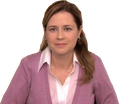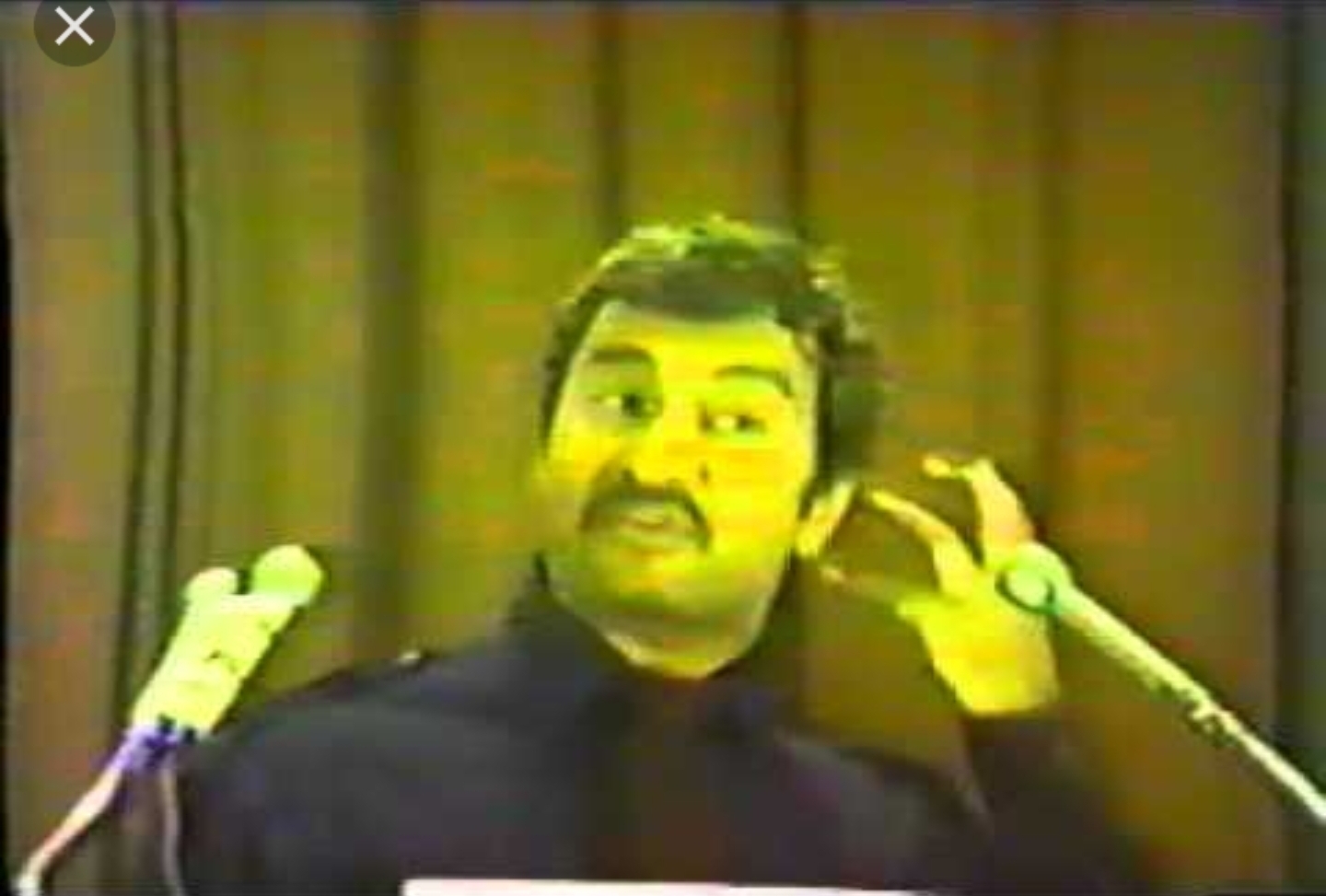New York continuing to be a warning call for what “vote blue no matter who” gets you.
A bunch of completely useless democrats who are to the right of Nixon.
A state government dominated by Republicans at all levels means a conservative government.
A state government dominated by Democrats at every level means a thousand Joe Manchins.
The New York dems didn’t deliver on a promise? Really? This is the first time I’m hearing this.

Nothing good ever happens. Can’t wait for NYC to go back on its 95% subway station accessibility by 2060 promise as well. 🥴
once sea level rise floods the tunnels, we’ll just issue SCUBA equipment to each MTA rider and accessibility becomes easier because of buoyancy
Aren’t the subways in New York already built under basically actual rivers and require continuous drainage to maintain functionality?
Don’t worry the Democrats will run on replacing 73% of the subway lines with Els by 2115
Can’t wait for NYC to go back on its 95% subway station accessibility by 2060 promise as well.
Honestly the current plan is insulting enough as it is. Accessibility laws passed in what, the 1970s? I get its tough to build in the city with all the craziness going on underground (all sorts of utility pipes and what not), but for it to take this long to formulate a plan and then carry it out… just a sad state of things.
Cowardice to the most insane degree. The one good thing that I was looking forward to is gone. Infinite jihad against Hochul.
Hochul is responding to worries raised by Rep. Hakeem Jeffries, the House minority leader who is fiercely trying to win back a Democratic majority this year. Republican victories in New York congressional races helped the GOP seize power two years ago, and Hochul and Jeffries are both anxious to reverse that fortune."

Republican victories in New York congressional races happened because of an own-goal redistricting process done by Democrats while they controlled a supermajority of the state legislature.
https://www.brennancenter.org/our-work/research-reports/what-went-wrong-new-yorks-redistricting
That’s minimizing all the hard work that state dems have put in to being dumber than dogshit and trying to campaign to republicans while telling anybody left of Clinton to go fuck themselves.
I would legit be ok with hochul eating shit just so maybe dems could be aware of the fact there actually is a basement to the amount of shit people will put up with while begrudgingly supporting you.
Not so surprising given how much of a voice the media gave to opponents to attack congestion pricing.
she’s so wavy
It’s the lack of spine
Wow, them curves 👀
Aren’t congestion charges a regressive punishment for those who are stuck driving in cars? Increasing the cost of driving is an attempt at a market solution to traffic. Market solutions suck balls, are ineffective, punish the poor, and don’t mean anything to the rich.
I don’t think anyone on Hexbears should be supporting making driving (something that working class folks are forced to do and rich folks treat as a luxury) more expensive. We need to focus on making alternative transportation modes more effective and free instead
At least as far as New York City goes this is wrong. Car ownership in the city is correlated with income; the poorer you are the more likely you are to not own a car and instead take public transit to work. https://wellango.github.io/posts/2021/06/who-owns-cars-in-nyc/
There have been repeated studies (see https://nyc.streetsblog.org/2007/11/02/fact-check-congestion-pricing-is-not-a-regressive-tax or https://citylimits.org/2017/09/07/debate-fact-check-is-congestion-pricing-regressive/) that in NYC congestion pricing would not be a regressive tax, and in fact would be progressive given the composition of car ownership in the city. Couple this with the fact that less cars means a more pleasant experience for those walking and taking transit (the vast majority of New Yorkers, especially amongst the poor) it’s clear that congestion pricing would be a good thing.
Oops, I replied before actually looking at the studies you put in there. That is good info.
I would still say that overall, opposing flat fuel taxes, tolls, and congestion taxes is a good stance, because in nearly all areas it is the workers who are tied to car ownership for their employment. We should be making it easier for workers to save time and money and have more time for organizing!
However, it appears in this case there is at least an argument in support of the tax. Although diverting existing gas and driving tolls and taxes instead of adding new ones might be better.
It is good that the money is going to fund transit.
I feel like a crazy person though being the only one to suggest that carbrained america has tied it’s workers to the expense of driving and then ratchets up the cost in the name of fighting climate change or congestion if peace of mind and that that hurts workers. It’s true.
Yeah your last point is correct, which is why having a congestion price that just makes it harder to drive with no increase in transit is stupid. Luckily that’s not the case here, the congestion pricing is directly tied to expanding transit options for workers to get into the city.
Yeah, there’s the IBX rail project which should help a lot with transit in the outer boroughs. Also the Q line expansion, which should help add more transit capacity to East Harlem. And there’s a lot more that could be done.
I don’t think the people who this is going to negatively affect can afford to live in Manhattan. They live outside and commute in.
The environmental and peace push is fine but it’s really a NIMBY argument and separate from the extra cost on the workers.
Yeah the studies I linked show that it’s not just folks who live in Manhattan, most workers commuting into Manhattan don’t drive cars, and those that do are disproportionately wealthy.
The congestion pricing was only going to apply to cars driving downtown in Manhattan. The only people driving to work in downtown Manhattan are wealthy Americans who work a bullshit email job and commute from their oversized mcmansions in New Jersey or Long Island.
The money raised from the congestion pricing was also going to be put into public transit.
There aren’t service workers who drive to downtown Manhattan or Uber drivers? I would be supportive of a progressive charge, but simply implementing a new cost for people forced to drive isn’t supporting the working class.
Think of it like this: A parking spot in downtown Manhattan costs more per hour than minimum wage. Working class people already cannot afford to drive there. It’s cheaper, faster, and easier to take the subway. But white email job workers don’t want to share a physical space with working/non-white people so they pay extra to drive in.
As far as Uber goes, the cost gets passed on to the customer so it doesn’t really matter.
Also note that in Manhattan there is already a service charge tacked on to all Ubers, and you need to be a licensed cab driver by the NYC Taxi and Limousine Commission to drive an Uber in the first place. It’s not like other places in the United States where anybody can be an Uber driver.
Strange how NYC is somehow the only place in the world where service, technician, maintenance, etc workers magically don’t own cars but still get their tools around town.
Think about it like this: if driving is a necessity for many working class jobs, even if it’s already expensive, how does making it even more expensive help? Also, if it’s already rich people who can afford driving in Manhattan, what will adding a congestion fee do to deter existing drivers who already pay out the butt?
Strange how NYC is somehow the only place in the world where service, technician, maintenance, etc workers magically don’t own cars but still get their tools around town.
Mate, what are you trying to insinuate? Do you really think that commercial van drivers pay tolls out of pocket instead of their employers paying for them? Or are you weeping for petit-bourgeois owner-operators who are just going to pass down the costs to their millionaire clients anyways?
Do you know what does hurt commercial van drivers? It’s the unrelenting and crippling traffic congestion that NYC suffers from. And do you know what will relieve this traffic congestion? It’s a congestion tax.
Also, if it’s already rich people who can afford driving in Manhattan, what will adding a congestion fee do to deter existing drivers who already pay out the butt?
Congestion taxes empirically reduce traffic congestion and improve air quality downtown, as shown in London and Stockholm. This is not up for debate. This is proven by empirical evidence.
And so what if millionaire laptop workers drive anyways? Let them pay out the ass even more for the privilege! Society needs to stop subsidizing these useless drivers whose cars carry nothing but their ass and their laptop.
Listen, maybe there are special factors at play in Manhattan that make this better, but what I see on other jurisdictions, nay, every other jurisdiction, is that it is the minimum wage support worker and service workers who are forced to rely on car infrastructure, and forced to own cars, to get to their work. And those jobs are unforgiving. In every other case, increases to the cost of driving put the burden squarely on the workers. Yes, many “progressive voices” call for gas tax, toll roads, congestion taxes, etc. in the name of “pushing” people to get on public transit or carpool etc., but what it does is make it a market choice for those who can afford it, and put those who are barely scraping by in the situation of needing to choose between unaffordable driving, losing time from public transit, or finding new work.
I will admit that Manhattan is a unique place. Maybe this doesn’t apply there. But in nearly every other circumstance, anything that makes driving more affordable puts the pressure directly on the most vulnerable workers.
but what I see on other jurisdictions
Forget what you see in other jurisdictions, were talking about Manhattan here. Your points would make sense in Phoenix, Arizona, but they are completely irrelevant in New York City.
I don’t think you even read the linked article. I don’t think you are familiar with New York City at all. You are coming from a position of extreme ignorance when you say that minimum wage workers in NYC are relying on private vehicles to get to work when an hour of parking costs more than an hour’s wages.
NYC is not Phoenix, Arizona. You do not need a car to live in NYC. Owning a car in NYC is not even optimal. 54.5% of households do not own a single car there. When you talk about how subsidizing motorists is essential for improving the plight of workers, you ignore how the extreme subsidizing of cars in North America commits systematic violence against everyone outside of a car. It bears repeating that 54.5% of NYC households do not own a single car. 54.5% of NYC households do not own a single car and therefore are always outside of a car.
https://blog.tstc.org/2017/04/21/car-free-new-york-city/
You are completely ignorant about the realities of transportation in NYC. You are talking about people wasting time by taking the subway when the subway is literally both faster and cheaper than driving in NYC.
NYC has a world-class public transit network that is on the level of European metropolises. If you were to suggest that a minimum wage worker would own a car and drive their car every day to work in one of those European metropolises, you would be laughed out of the room. You are completely ignorant about the realities of transportation in NYC.
I have already replied to you about how contractors and other obligatory drivers would benefit from congestion pricing. I’ll repeat it for you again. Congestion pricing saves obligatory drivers tens of minutes per trip for only a few dollars per day. Time that is otherwise spent stuck in traffic is instead spent working and making money. Congestion pricing saves obligatory drivers’ time, and time is money.
It once again bears repeating that it’s absolutely incredible that you actually believe that McDonalds workers driving to work from the suburbs is a phenomenon that actually exists in NYC. I’m truly shocked at how you could be this ignorant. Are you someone who lives in some horrible sunbelt suburb where literally everyone drives literally everywhere for literally everything and has never visited anywhere else? If so, I’m sorry. You should visit NYC sometime and take the train. It’s truly amazing how liberating being able to go places without a car is. It’s something that everyone should experience at least once.
I’ll just repeat this again: 54.5% of NYC households do not own a single car. The vast majority of working people commute via public transit. The congestion tax proposed is a tax on cars and a subsidy for public transit (the proceeds go towards funding transit). Therefore, the congestion tax is actually subsidy for transit, something that the vast majority of working people actually rely on every day to get to work.
I know several gen-x and millennial working class folks who need to drive into Manhattan with their tools to do jobs in Manhattan. Offices don’t just materialize and sadly its hard to bring ladders and boxes of power tools on the subway.
Yes, exactly.
Do they pay the bridge tolls out of their own pocket, or does their boss/customer pay the tolls?
Depends. At least one has a company truck that probably has tolls paid for, but the boss wont even pay for new tires so who knows.
The others are more or less contractors and take their own ride in and pay for the tolls.
Are you sure? I would believe that tons of workers (maintenance, technicians, service) live outside of Manhattan and commute there, and probably many drive, since the subway is good, it doesn’t reach everywhere
They do not commute in their personal cars, no.
Sure, they drive the company van or truck in to work, but who pays the gas and tolls for the company van or truck?
I don’t think anyone on Hexbears should be supporting making driving (something that working class folks are forced to do and rich folks treat as a luxury) more expensive. We need to focus on making alternative transportation modes more effective and free instead
This is, at it’s core, reinventing homo oeconomicus but for transportation. I don’t mean this argumentative, but it stems from the idea that “were they alternatives good enough, people would not drive a car” which sounds reasonable, but given how carbrained society and many individuals are, just isn’t true.
Unfortunately, it is true. What doesn’t make sense from a leftwing perspective is making life less affordable for people who depend on driving to get to their work. Rich people don’t give a shit about a few extra dollars to drive. Yes they’ll whine about it, but it doesn’t affect them really. Who it does affect is the maintenance worker who has to pay more to get to their work site with their safety equipment and tools, or the technician who comes in from out of city to work on fixing stuff.
Who it does affect is the maintenance worker who has to pay more to get to their work site with their safety equipment and tools, or the technician who comes in from out of city to work on fixing stuff
I think commercial van drivers can afford to have their millionaire clients pay a few extra dollars for their services.
Who congestion pricing does affect is maintenance workers who would save tens of minutes per trip from reduced traffic congestion. In these tens of minutes, these workers could get to other clients and earn way more money instead of sitting still in unrelenting gridlock.
Look, I’m tired of this, as I feel like I’m just repeating myself. This is a market-based attempt at a solution. And it’s basic econ101 that supply and demand market efforts just make whatever it is unaffordable for the poorest among us.
A standard leftwing position should be against market solutions to problems, unless there’s very good evidence, and consultation, that this is what everyone wants.
You are still talking about how cars and driving should be affordable when they should not be.
Cars are an expense that are paid for in the blood of humans and animals. Cars literally kill millions every year. Air and noise pollution kill more.
While you are in support of cars, I am against cars. You think that poor people should own cars because of equity. I think that poor people should not own cars because nobody should own cars.
There is an ongoing global ecocide going on right now. The Anthropocene is the sixth mass extinction. I do not care that you care that cars should be affordable. Cars should not be affordable. Externalities should be priced in. Every time you drive, the world pays in blood.
Fuck cars.
P.S. I’m not sure where you got the idea that to be leftist is to be anti-market, especially to be opposed to all market-based incentives. China does a lot of that stuff. Maybe you should look into it. Congestion pricing is a market-based solution that is empirically shown to work, as seen in London and Stockholm. Please read the linked article next time before you comment. No investigation, no right to speak.
Also, I don’t really know what to say in response to this. First of all, it’s not “basic econ101” that “supply and demand market efforts just make whatever it is unaffordable for the poorest of us.” An example of a free market good that has been made affordable to the poorest amongst us are basic smartphones. They cost like $20 now. But also I’m not sure how this is relevant at all to the topic of a congestion tax, which is specifically supposed to suppress demand to increase the amount of fixed supply that can be allocated to each user.
This is a market-based attempt at a solution. And it’s basic econ101 that supply and demand market efforts just make whatever it is unaffordable for the poorest among us.
You can hate cars all you want. I see where you might have got the idea I love cars, but in fact like a reasonable person I look at car-centric infrastructure as a bad thing.
However, like a reasonable person, I can also see how workers are tied to that infrastructure. Workers need cars to hold jobs in today’s society. Making driving more expensive makes it harder for working class people to get to their jobs.
I don’t really know how much more straightforward I can be.
Bringing in environmental considerations to this seems on the surface like it’s relevant but it’s not. Yes, everyone needs to stop driving cars. Increasing the cost of driving will mean that people who have the ability will think about other methods of transport. Many people cannot, and making cars more expensive just puts the burden on poorer people to survive.
At some point, I think it’s important to break down what talking about increasing the cost of driving as an environmental win actually means. It means that poorer people will not be able to afford to drive, and so will lose their jobs. The rich don’t give a crap about a couple of bucks extra - they don’t ride public transit for entirely different reasons.
Anyway, thanks for telling me very aggressively that I’m wrong, dumb, uninformed, and should not have an opinion. I actually think you haven’t thought through your views and considered what effect environmental policy can have on vulnerable people. And if you think that means I support cars, well I’m not sure what to tell you.
Actually, this is a good overall view on where I’m coming from. This is about Toronto, but it’s overall the gist I’m (poorly) attempting to communicate:
Here’s another good one, but about London. Similar gist.
https://socialistworker.co.uk/news/can-congestion-charges-work/
Also, there was one I posted in a different comment specifically about NYC.
we may have to start making excuses for the lack of terror
I’m relieved. Turning private cars into a revenue stream means the MTA will always want large numbers of private cars rolling into the city. That’s the opposite of what a transit system should aim for. A ban on private cars will put rich people too snooty for the metro in favor of a better metro, as it will be the only game in town, and they will get what they want. I know Hochul’s opposing it from the opposite direction, but that doesn’t make it a good policy.
OK but you see how this is not really a solution, right? This is the ultraleft position of “if we can’t do the best possible thing we shouldn’t do anything at all.” Congestion pricing discourages cars from entering the city and is a step towards a private car ban. The MTA does not control the bridges or tunnels into Manhattan, that’s the Port Authority, so they’re not in a position to ever ban or affect cars entering or exit the city. There’s no like perverse incentive this creates on the part of the MTA to support cars because they have no policy levers to do so.
It’s a step away from political feasibility of a car ban. As it stands, the opposition should just be drivers. With a congestion charge in place, a car ban would mean budget cuts to the MTA and/or tax hikes, so you’ll see people who never set foot inside a car opposing the ban because they’d be impacted by one or both of those things.
As for the policy levers, they run the metro. If they improve the metro to the point that a lot of drivers stop driving in, they lose money. That’s the perverse incentive.
As it stands, the opposition should just be drivers.
This is unrelated to your overall point, but suburban motorists are irrational for opposing congestion pricing. The addition of a congestion tax/toll would do wonders for rush hour traffic. The current experience of driving in Lower Manhattan during rush hour is sitting in a sea of cars at 0 mph while watching pedestrians walk faster than you.
The reason motorists oppose congestion pricing is because they wrongly perceive driving as free. The millionaire NYC middle manager who commutes downtown every day in their Audi A8 L pays $5.10 every 25 miles in gasoline, but they don’t realize this because they only feel the cost once they hit the pumps.
https://fueleconomy.gov/feg/Find.do?action=sbs&id=45613
There is an irrational aversion to taking the train because the cost is paid upfront, so you’re constantly facing the reality that travel costs money. With cars, you only pay once you’re done driving - up until then everything appears free.
Because of these factors, motorists have this idea that driving downtown “has always been free” when in fact it is not free and has never been free. Rational motorists who understand that they are already paying lots for the privilege of driving have no qualms about paying a little bit extra to shave tens of minutes off their commute.
Here’s a good counterpoint to the regressive idea of congestion taxes. I’ve been trying to convey this message throughout this thread, as I seem to be the only person here who sees this congestion tax as hurting the working class. Anyway, I can’t seem to get my ideas across, but this is a good summary:
https://socialistrevolution.org/mobilize-labor-to-fight-nycs-congestion-tolls/
We must ask: who will these less crowded streets benefit? It can only benefit the wealthy who are unbothered by a $15 fee for driving on refreshingly emptier streets.
Counterpoint, the other group of people who will benefit are those that breathe air. The reduction of air pollution will benefit all in the city, including workers who have to work in the air of New York and who do not drive at all.
Removed by mod
















